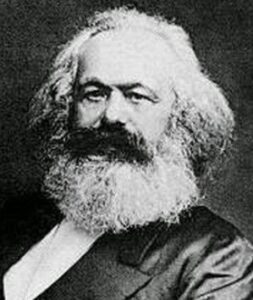 by James C. Sherlock
by James C. Sherlock
Did you read the over 100 comments beneath The Left Is Lying: CRT Is Peddling Hate in Our Schools earlier today in this space?
Quite a dogfight.
Do you notice how the left tries to pretend that applied critical theory in education, which incorporates CRT but is about much more, is about only the teaching of history?
The organizing principle, dogma really, of the critical theorists creating Virginia educational policy at VDOE is that American society is oppressive and must be dismantled through the K-12 public schools.
That is one reason why those same policies deny the exercise by parents of their roles, obligations and rights at every turn. Parents form the very American society that the left wants to dismantle.
We should stop the diversions and deal with what the left writes clearly that it is attempting.
I will quote below from Critical Theory and Education by Tabitha Dell’Angelo.
Tabitha Dell’Angelo is an Associate Professor and Coordinator of the Urban Education Master’s Program at The College of New Jersey. Her research interests include social justice in education, cultural identity development, stress tolerance, and coping strategies for teachers.
So I will jump to the conclusion that she is a fan of that of which she writes.
“In the application of Critical Theory proper, offshoots have been born that seek to shed light on how various aspects of culture function. In that regard, there are various “cross-pollinations” between critical theory and other theoretical arenas. These include education and pedagogy, contemporary feminism, and critical race theory, among others.
In this section, we will offer an explanation of some of these areas and how they fit into the larger tradition of Critical Theory more generally.
Each of these theories is legitimately linked to Marx’s original conception of Critical Theory as they each seek to analyze and create change within various aspects of culture where oppression exists. In terms of Critical Theory in Education, Marx would evaluate the ways in which education, curriculum, and classroom interactions are socially constructed and to what degree these interactions are based on what the participants truly believe is right. Though much of his philosophy is tinged with a kind of determinism, an idea that societal structure can define and limit human thought, a central tenant of Critical Theory, is the belief that change is possible, no matter how great the obstacles to that change.
As Paulo Freire (1970) spells out in Pedagogy of the Oppressed
“if the examination of oppression is conducted without hope for change, it is a sterile enterprise, inculcating hopelessness in students, which, in turn, can only further discourage individuals from seeking emancipation and change.”
In his eyes, the only reason to spend time and energy understanding oppression is so that it can be ultimately dismantled.
Critical theories of education recognize that (a) educational systems are at least complicit in oppression (though many would go farther and state that these systems are the most powerful mechanism for the reproduction of social inequality), and (b) there must be a corresponding plan for emancipatory action through education. The mechanisms of oppression and the opportunities to create change exist simultaneously in two important aspects of education — the nature of curriculum and the pedagogies teachers enact. ”
That, whether you agree with them not, is the progressive left’s agenda in introducing critical theory into Virginia schools.
It is that “society is oppressive and must be dismantled,” and they are offering “a corresponding plan for emancipatory action through education.”
Please don’t disrupt the progressives clarity of purpose.
It is their one virtue.


